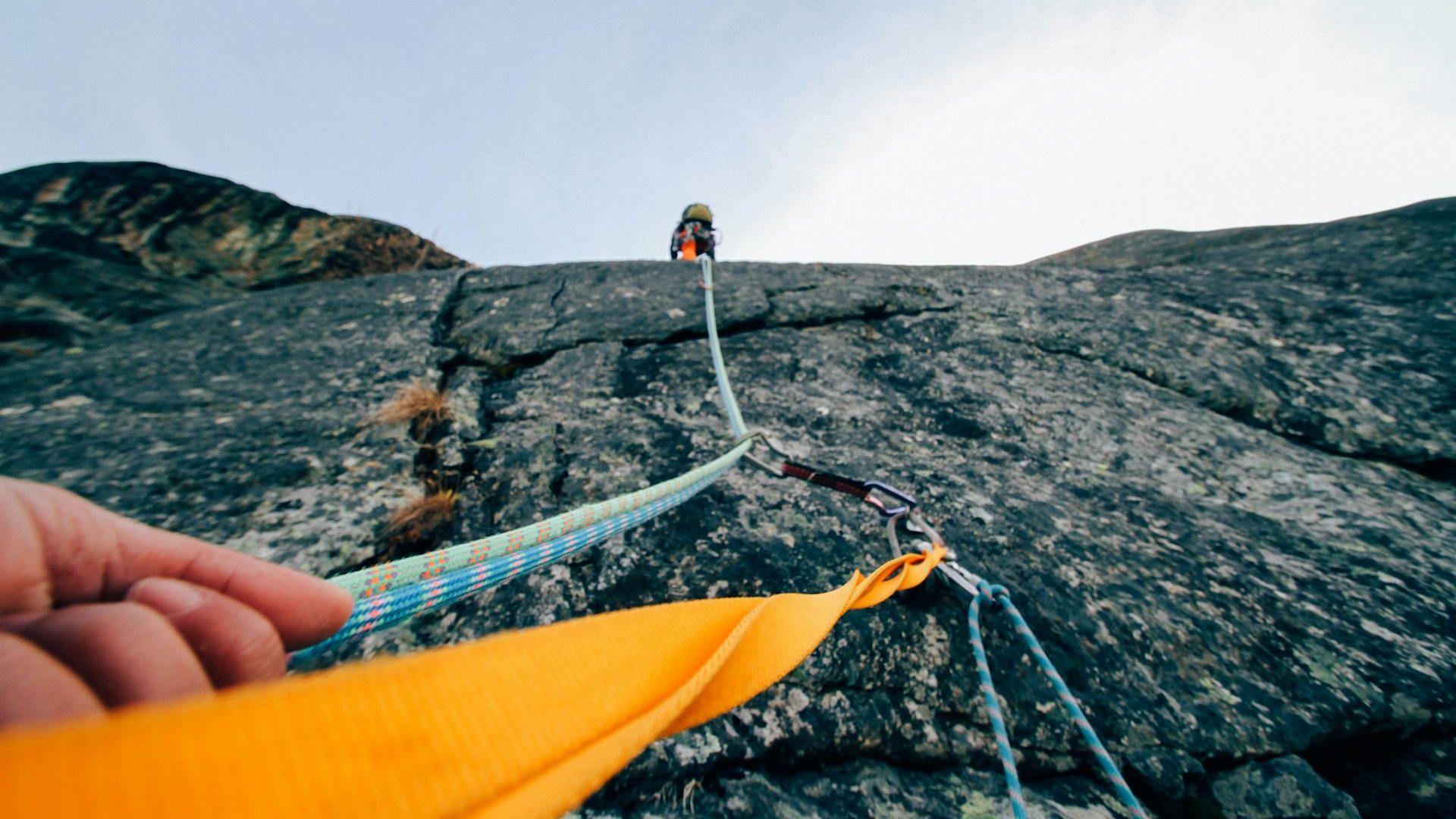Roped In Together: What Alpine Mountaineering Teaches Us About Thriving in Relationships
Jul 16, 2025
By Teena Evert, MA, LMFT
PACT Level 2 Therapist
Picture this: two climbers roped together, navigating ice, snow, and steep rock faces on a remote alpine peak. Each step is taken with care. Each decision, a matter of trust. They move as one — because in alpine mountaineering, your survival depends on the strength of the team.
Relationships aren't life-or-death in quite the same way, but when you're in a long-term partnership it can feel just as high stakes. The same skills that keep mountaineering partners alive can help couples not just survive but thrive.
This is exactly the kind of relationship that the Psychobiological Approach to Couple Therapy (PACT) aims to create: a secure-functioning team, where both partners have each other’s backs, especially in moments of stress, fear, and challenge.
The skills that keep climbers alive can also keep couples connected — with help from PACT.
Roped together: mutual care in high-stakes conditions
When climbers tie into the same rope, they make a powerful agreement: “If one of us falls, we both stop the fall.”
This isn’t just metaphor. In PACT, partners are expected to operate with the same level of commitment. Secure-functioning couples don’t leave each other hanging. They move through life with the mindset “I’m responsible for you, and you’re responsible for me.”
In a PACT-based relationship, your partner’s safety — emotional, psychological, and relational — is your job. Not because you’re codependent, but because your relationship depends on it.
Read the weather: stay attuned
Mountaineers constantly scan the environment for subtle shifts — cloud cover, wind, the feel of the snow underfoot. Likewise, couples need to read each other. Is your partner withdrawn? Irritable? Showing signs of stress?
In PACT, attunement means staying aware of your partner’s internal state and responding quickly.
Like a good climber, you learn to detect early signals before they become full-blown storms.
You don’t ignore the red flags or say, “They’ll get over it.” You check in. You adjust your pace. You build safety with presence and responsiveness.
Move as one: win-win or no deal
In alpine climbing, one person can’t race ahead while the other struggles. If someone slips, the rope pulls both climbers down.
A relationship cannot thrive on win-lose dynamics, either. If one person’s needs are always met at the expense of the other’s, resentment builds — and the partnership weakens.
In PACT, couples learn to co-create win-win solutions. This is the heart of PACT’s principle of mutual fairness and justice.
Like choosing the best route on a mountain, creating win-win solutions takes communication, negotiation, and the willingness to sacrifice short-term comfort for long-term success.
Anchors and safe havens: regulate together
Mountaineers build anchors — places of stability when the terrain is dangerous. These aren’t just safety tools; they are lifelines.
PACT teaches couples to be each other’s anchors. This means co-regulating: learning how to calm each other’s nervous systems during stress.
In PACT sessions, couples practice using eye contact, tone of voice, touch, and timing to stay connected, even when emotions run high.
Co-regulating isn’t about being perfect. It’s about knowing how to repair quickly and return to emotional safety.
Trust the rope: the power of secure functioning
Alpine climbers live and die by trust. If your rope partner makes a risky move without telling you — or doesn’t belay you properly — your life is on the line.
While your relationship may not involve crevasses or avalanches, emotional betrayal can feel just as dangerous. In PACT, secure functioning means creating a system where trust is reliable, mutual, and earned through consistent action.
You don’t take shortcuts. You don’t abandon your partner mid-route. You make sure that what’s good for you is also good for us.
From the summit: what it looks like when it works
When a couple works like a skilled mountaineering team, amazing things happen.
- Communication becomes quicker and clearer.
- Conflict becomes easier to navigate.
- Emotional intimacy deepens.
- Both partners feel more seen, supported, and safe.
Like climbers who reach the summit after a grueling ascent, couples who do the work of PACT report feeling stronger — not just individually, but together.
Your relationship deserves more than survival.
It deserves skill, trust, and teamwork. If you and your partner are stuck, struggling, or sensing that the path forward feels uncertain, rope in together and reach out to a PACT therapist as your guide.
Through PACT, you can learn to move as a team anchored in love, fairness, and deep mutual care. Plus, the view from the top is best when you reach it together.

